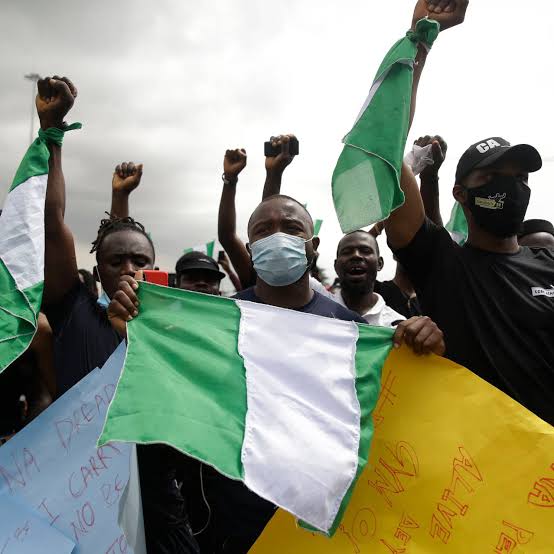Nigeria’s decades of Democracy: Celebration amid fading ideals

Nigeria, Sudan, 10 least peaceful countries in Africa in 2025
Nigeria marks 26 years of uninterrupted democratic rule, a milestone commemorating the return to civilian governance on May 29, 1999, following decades of military dictatorship. Declared Democracy Day by President Muhammadu Buhari in 2018, this anniversary honors the 1993 election of Moshood Abiola, a symbol of democratic hope brutally suppressed by the military government of Ibrahim Babangida.
Yet, as Nigeria reflects on this journey, the ideals of democracy: freedom, accountability, and representation appear as a shadow. With hyper-inflation, multiple conflict fatalities since January 2025, and over hundreds of mass abductions since 2019. The nation’s democratic experiment is faltering. President Bola Tinubu’s administration, two years into its term, has increased this erosion through mismanagement, political opportunism, and a stifling of dissent. After 26 years, Nigeria’s democracy is more a façade than a fulfillment of its founding promise.
The journey of Nigeria’s democracy and the promise of 1999
The transition to democracy on May 29, 1999, under President Olusegun Obasanjo was a beacon of hope, ending 16 years of military rule marked by coups and human rights abuses. The 1999 Constitution, under Section 14(2)(a), enshrined sovereignty in the people, promising governance that reflects their will. The Journal of Democracy notes that this shift aimed to foster accountability and inclusivity, with elections seen as a tool to address ethnic and regional tensions that fueled the Biafran War. June 12, honoring Abiola’s stolen mandate, was meant to symbolize this commitment.
However, the reality diverged early. The 2003 and 2007 elections, marred by fraud and violence, set a precedent of compromised democracy. The 2023 election, with Tinubu’s 37% vote share amid allegations of rigging, continued this trend, with only 27% turnout, the lowest since 1999. This has made Nigerians of all ages who now sees elections as a charade, not a democratic exercise. After 26 years, the promise of fair representation remains unfulfilled.
RELATED STORIES
Tinubu’s Two-Year Mark: A legacy of unfulfilled promises
Political parties: A special purpose vehicle for Nigerian politicians
Democracy in chains: Nigeria’s urgent call for electoral reform
Current damages to democracy in Nigeria
Tinubu’s two-year tenure, marking its anniversary on May 29, 2025, exemplifies this democratic decline. His economic reforms, like the May 2023 fuel subsidy removal, aimed to save trillions of naira has only spiked petrol prices, and inflation soaring. The continuous borrowing since 2023, despite subsidy savings claims, burdens future generations while debt servicing consumes 50% of revenue. Tinubu’s April 29 plea for Nigerians not to criticize his mismanagement is a chilling rejection of accountability, a cornerstone of democracy.
Security failures further erode trust, with over six thousand conflict deaths from 2024 and 735 mass abductions since 2019 according to the NFIU highlight a government unable to protect its citizens. Nigerians have lamented the issue of insecurity and demanding the true meaning of democracy when safety of lives and properties can’t be guaranteed by the government. Tinubu’s administration, distracted by defections, prioritizes power over people.
Suppression of dissent and threat to freedom
Freedom, another democratic ideal, is under siege. The 1999 Constitution’s Section 39 guarantees free expression, yet Tinubu’s government has mirrored past authoritarianism. The arrest of NDC’s Chief Nubari Saatah in March 2025 for planning a protest and the detention of 15-year-old Quadri Yusuf Alabi signal a clampdown on dissent. This is something not different from the military era. While the government may claim that repressing citizens rights like freedom of speech and movement is to ensure the prevention of anarchy. No, it appears as fighting fire with fire and undermining democracy which allows room for dialogue.
Tinubu’s political maneuvers, consolidating APC dominance through defections, risk a single-party state. The PDP’s collapse leaves opposition weak, stifling the competition democracy requires, which shows a public losing faith in electoral change.
Counterarguments
Meanwhile, a look at the cup half filled and towards the brighter side, defenders might argue that 26 years without a coup is progress, with infrastructural projects emerging in different parts and regions of the country and the trillions of naira saved from subsidy removal as achievements. The Journal of Democracy acknowledges Nigeria’s resilience in maintaining periodic elections, even though the elections often times do not reflect the true choice of the people and only promotes more violence.
Moreover, these gains are nothing compared to failures, most of the infrastructures put in place are not sufficient in addressing the country’s underdevelopment, unemployment and insecurity, and savings haven’t reached citizens, with millions needing aid and these savings often coveted by the elite few. Progress without accountability is hollow.
Conclusion
On June 12, 2025, Nigeria’s decades of democracy is a bittersweet milestone. The ideals of 1999: freedom, accountability, representation have been lost by mismanagement, insecurity, and suppression under Tinubu’s government, ergo sum let’s face the real issues, this is a clarion call for leaders to honor Abiola’s legacy by restoring trust. Nigeria must rebuild INEC, end political defections, and prioritize security and equity. Without any of these measures becoming a reality, democracy remains a promise unkept. Its survival hinges on renewal, not celebration.

